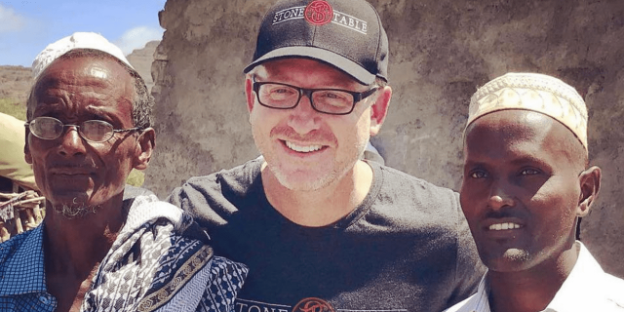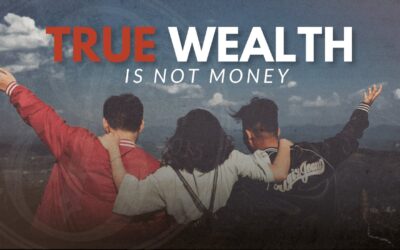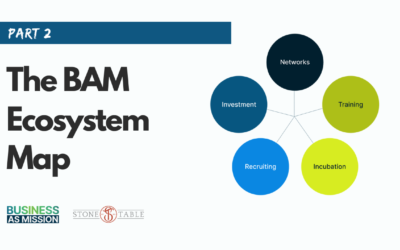Mission to Unreached Peoples: Two Stories from the African Field

**This is a repost of two articles from 2018. The following is a personal story with one of our Business as Mission (BAM) practitioners using business in the Mission to Unreached Peoples as a mechanism for planting the Church in areas of the world where you can’t do that with traditional missionary methods. To protect the work being done, we will not be sharing their names or specific locations for their protection. **
This suburban boy from middle America just spent a day in the middle of nowhere to help further the Church’s Mission to Unreached Peoples in our world.
If you know anything about The Stone Table, you know we have a huge passion for the mission to unreached peoples and places of our world. We leverage our resources, often through business as mission (BAM), to take the Gospel and plant the Church where there is no church.
The Afar are an unreached people group of goat herders that live in parts of Ethiopia and the Horn of Africa. Of around two million Afar people, we know of only a few hundred Christians. In the region we visited (which I need to keep anonymous), you could count the believers on one hand.
We got up early and drove three hours to the end of civilization – then we drove an hour and a half further. There were no roads to this place they’ve accurately nicknamed “Moonscape,” and even our utility vehicle struggled at times over the jagged terrain. We saw wild camels roaming amongst the small, rural mosques. The Afar are a syncretized mixture of animism and folk-Islam, but the roots of their Muslim faith are as clearly present as Jesus is absent.
Sharing Their Lives
We were warmly welcomed by the village elders and had a chance to sit and chat with them for quite some time about everyday life. They generously brought out blankets and pillows and asked us to take off our shoes for what turned into an hour-long conversation. We brought an award-winning videographer to share our mission with the world and do some filming of their community and customs; they were more than thrilled to share their lives with us.
Nothing is green – everything is brown – and so the bright colors of their native clothing popped in stunning contrast to the dull earth tones all around them. We toured their traditional housing, took selfies with the kids (they loved seeing themselves on our iPhone screens), and even drank some native spiced tea (a move I questioned later when they showed us the frog-infested sludge-covered water source from which it came).
We wrapped up our time with a traditional meal; a young goat killed that morning alongside a giant bowl of rice, all of which we ate with our hands as the juices ran down our forearms. It didn’t take long to notice the two front teeth smiling at us from the serving plate. “Please try and eat as much of this as you possibly can,” we were told. “This cost the family a great deal to serve to you today.” We closed our eyes and reached for seconds.
Why We Go
Why do we go to these places? You could argue that our secularizing western culture is as far from the Gospel as any remote African tribe. You could also say that the “mission to unreached peoples” also includes many in our own backyard that don’t know Jesus. And you might be right, except for one key difference.
Yes, there are those in our communities that are desperately far from Jesus, and we need to live with His Kingdom in our lives and on our lips right in our neighborhoods. But when we talk about the mission to unreached peoples – the truly unreached – we are really talking about access.
In our mission to the world, there are still currently 3 billion people in the world (over 40% of the global population) that are utterly devoid of any true Christian witness. When you meet someone, who has literally never heard the name of Jesus, it will change you forever.
And most have no opportunity to hear. They have no access unless we change that for them. The mission to unreached peoples is something we must pray for, we must send for, and we must GO for.
We need Western missionaries to go.
We need African missionaries to go.
We need missionaries from every nation to go.
Cross-cultural missionaries.
Near-culture missionaries.
From all to all.
A Call To Missions
The mission to the unreached peoples around us includes the Afar Tribe, because they still need access to The Gospel. These are the hard places.
Very few of us will ever physically go and live in places like I visited earlier this week, but all of us are called to the unreached. How are you praying for them? How are you investing your resources? Is God stirring your heart to go?
Everyone deserves access to the Gospel. Will you help us?
If you feel God is stirring your heart for the mission to unreached peoples in our world, we can connect you to some incredible opportunities. Discover more here!
From The Field: How an English School is Planting the Church in Hard-to-Reach Places
The following is an interview with one of our Business as Mission (BAM) practitioners in the Mission to Unreached Peoples using business as a mechanism for planting the Church in areas of the world where you can’t do that with traditional missionary methods. To protect the work being done, we will not be sharing their names or specific locations for their protection. **
Why is Business as Mission (BAM) so important today within your community and in your culture?
We must have legitimate reasons for living in a culture that does not allow traditional missionary work. Therefore, we had two choices: 1) We could start a non-governmental organization (NGO), which is supposed to operate independently of the government (although in our context, this is not the case), or 2) We could start a not-for-profit business.
Why did you choose your business model, and how has it impacted the community?
We chose to start a not-for-profit business in the form of an English School. The long-term plan is for this business to be sold to a local believer. The business mission was launched from a grant (missions’ donations), and the school staff (the missionary teams) function as volunteer teachers at the school. The local people highly respect teachers, so we have tied everything to education. This ultimately becomes the mechanism for discipleship as it opens the door to every aspect of the community.
The school brings people to us! We do not have to create opportunities to share our faith; they come to us every day. Our mission to the unreached peoples around us is not limited by the boundaries of our buildings. Through our education/replication model, our business mission takes us out into the community as well.
Tell us a story about someone who has been impacted by your business.
Recently, I was in town having a meal on the street with some college-age guests from the U.S. As is common when guests visit, some of the young local guys were attracted to the American girls in the group. The young men began to ask me in Swahili if I could help set them up on a date.
The young men were sitting in a group of their peers, so in Swahili, I challenged them with the question:
“What would make these young ladies choose to be with you?”
My question caused riotous laughter from their friends!
I took the opportunity to challenge the local traditional idea of a marriage relationship with the Biblical model. I told them as a teacher and a man who has successfully been married to one wife for almost 28 years, I have a secret source of wisdom that I was willing to share with them, but it would cost them their time. Then I turned and walked away.
Two of the young men chased after me, asking where they could get this secret wisdom. One of these young men is Issah, which is the Arabic name for Jesus. Today, Issah is discovering that his namesake is that secret source of wisdom as we study the Bible together.
This is how our business mission is making disciples and how our team’s mission to the unreached peoples here means planting churches in one of the most unreached areas in the world.
For more on Business as Mission (BAM), Business for Transformation (B4T), or their related terms, click here.
If you’re interested in joining the work on the field, we want to encourage you to GO! You can sign up to intern with existing businesses or learn about joining a missions team.


